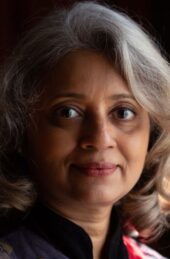Thomas Waugh, Eastern Approaches is the second book in the Daniel Ambler spy series, tell us about the premise of the novel?
Eastern Approaches follows on from Duty Calls, although it is written to work as a stand alone. The spy novel is set during a Graham Greene conference in London. Ambler is asked to make an approach to a Russian writer, on behalf on MI6, to help recruit him. But things are not what they seem, of course. Although there isn’t a murder involved, the novel is a whodunnit in part – as in the reader will keep wondering who may be a spy in the pack in relation to the cast of attendees. As well as intrigue though there’s plenty of satire in the book – just because there’s plenty to laugh at in the world. So much so, it’s tragic.
What drew you to the idea of a Graham Greene conference, placing the book over 48 hours? How difficult was it to write in this short framework?
I wanted to write a Graham Greene “entertainment”, so I thought it would make a fitting – and ironic – setting. There are a fair few of in-jokes for fans of Greene, though one doesn’t necessarily need to be familiar with his books to enjoy the novel.
The tight setting naturally gives the novel pace. – and creates the sense of a locked room murder mystery.
It was remarkably easy to write within the setting and timespan. Framework is another work for structure – and novels need structure.
How did you do your research for the book?
I basically re-read a wealth of Graham Greene novels. It was a pleasure (despite how depressing some of his books can be). Richard Greene’s biography of Graham Greene, Russian Roulette, proved invaluable too. I also found myself re-reading some Ben Macintyre books, to get a handle on the make-up of spies.
How did changing current affairs and the evolving war in the Ukraine impact your positioning of characters such as Ambler?
Cleverly, or otherwise, I have set each novel a year or so before publication so events have already happened. With Duty Calls I was conscious of putting the war and remnants of the Cold War in the background of the plot. With Easter Approaches there may be less of that, but Ambler is positioned as someone who is aware of the dangers of Communism, Putin’s regime and the FSB.
Who are your spy novelist heroes? Would you describe Ambler as a hero?
The usual suspects. Graham Greene, Eric Ambler and le Carre. In term of more recent writers I can recommend Henry Porter and Alan Judd. All of those writers were conscious of writing within a great tradition if you like, but they also added something of their own to the genre.
Ambler may be described as an accidental or reluctant hero in some regards. He is also an anti-hero, but because he is often witty and charming we will forgive him for some of his sins. Traditionally spies exist in the shadows. There should be more grey than black and white. James Bond, the character in the books, is far more flawed and interesting than his cinematic counterpart, for instance.
What advice would you give to authors writing spy thrillers?
Read the authors in the canon, mentioned above, as well as others. There’s a reason why they have sold and their books have been well received. Also, spy fiction is a sub-genre of crime fiction in many ways. It’s fine to bring elements of the crime novel into play, such as intrigue, violence, a reveal or reversal of fortune. The ingredients for the recipe are similar. Also, just keep on keeping on as a writer. Plot well, create an engaging protagonist, finish writing the novel. Be brutal with yourself in terms of editing too.
What are you working on next? Will there be another addition to the series?
I am indeed intending on continuing the series, as well as writing another James Marshal book, but I’m just not sure when I’ll finish or what it will be about yet. As a spy novelist I should try and create more of a sense of intrigue, I know. It will be nice to hear back from readers about what they thought of Eastern Approaches, as their comments may help shape book three.
Thomas Waugh is the author of Eastern Approaches, published by Sharpe Books.







